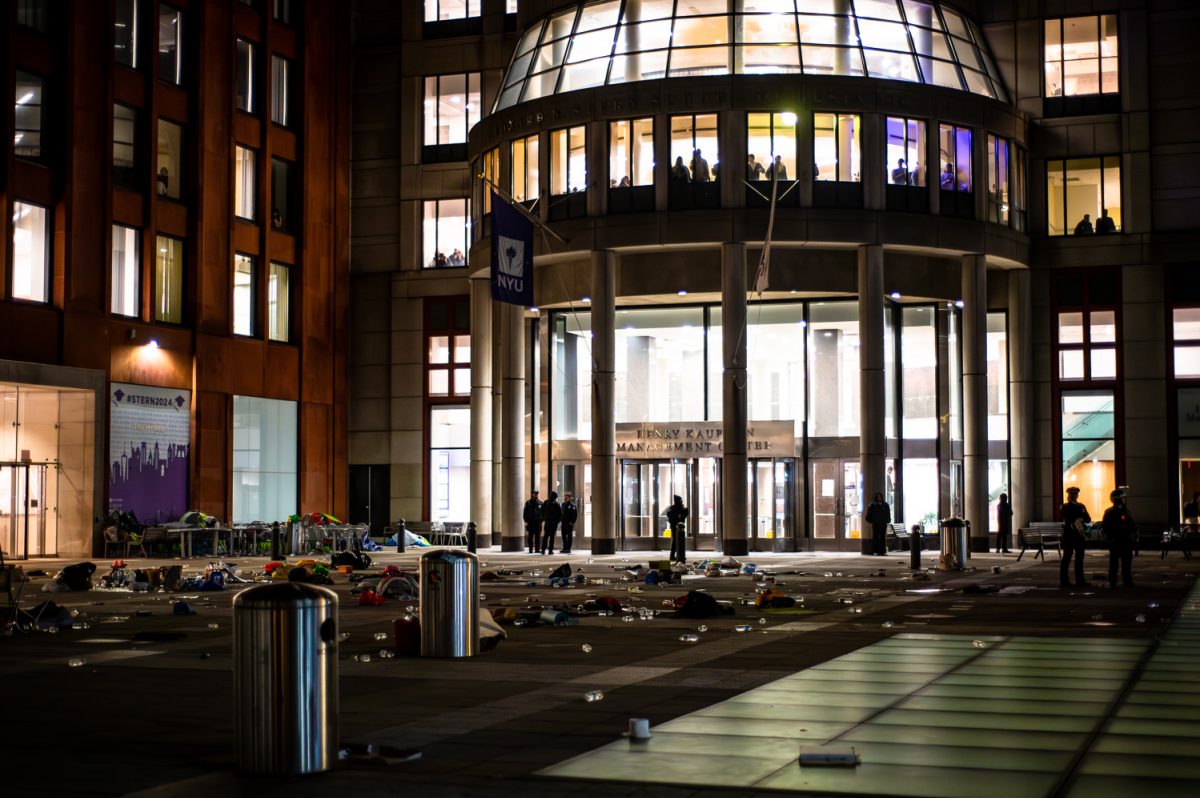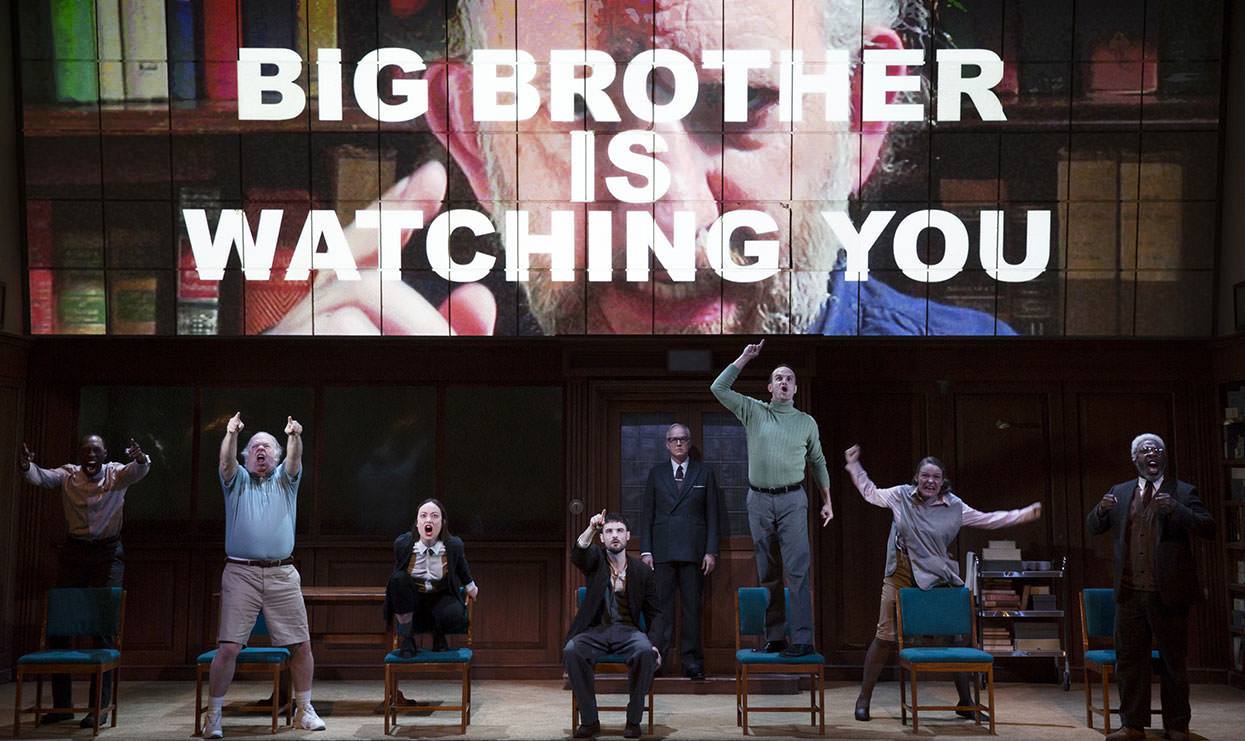Big Brother on Broadway
1984 on Broadway provides a theatrical experience like nothing else. The play is shocking and uncomfortable, but also timely and necessary.
September 18, 2017
Many theatergoers today know the experience of having a play drive them to laughter or tears, but few have attended a play that makes them faint or flat out leave the theater. “1984” on Broadway presents a unique experience for audiences —while it is not uncommon for plays of the highest quality to emotionally move and affect their audiences, “1984” is an anomaly in that it initiates deep inquisitive thought into the nature of our society.
Robert Icke and Duncan Macmillan adapted and directed George Orwell’s novel. The play “1984” begins with a slightly disconcerting atmosphere that becomes incredibly distorted by the rebellious actions of the protagonist, Winston, against “the party.” Because of the level of initial normalcy of the setting — an office — it is easy to sink into what you are watching, but as an audience member you quickly learn that getting comfortable is not the best option. While most productions welcome you to relax and be entertained, “1984” restricts you from doing exactly that. During abrupt scene changes, the use of a black-out accompanied by jarring flashes of blinding light stuns the audience,waking viewers up from whatever sense of comfort they develop.
The play originated in NottinghamPlayhouse in England before transferring over to the West End and then making its way across the pond to a limited run in Hudson Theatre on Broadway through Oct. 8. Though its British origins are evident through both the language and the show’s setting in “Eurasia,” the American actors translate the work beautifully. Tom Sturridge’s performance as Winston depicts him as a somewhat twisted individual — an outcast. Yet as the play goes on, it is clear that his purpose is to appear as a symbol of the most primitive sense of humanity, revealing the truth of how the common man would act while all sense of truth —“two plus two makes four” becoming false — is taken away from him.
When Winston and his love interest, Julia, are discovered to be part of the resistance, sensory overload follows. While the story provides a great deal of shock, the sudden explosion of lights, colors and sound forces the audience into panic mode.The theater goes dark, leaving audiences dreading whatever is going to emerge from the darkness. Winston is then graphically tortured before the audience’s eyes. While torturing him, O’Brien references eerie similarities between the fictional world and the real one. The lights come on in the theater as O’Brien reveals to Winston that the world will stand by and watch these atrocities happen. As an audience member, you get the urge to run up and say something or to runaway, but you can’t — and that might be the most frightening part.
This play has come at exactly the right time — one of fake news and blurred ideologies. Though it may be uncomfortable to watch such horrible events happen onstage, showcasing them is necessary. Every time a politician lies to the masses about what is right in front of them, attempting to convince them that “two plus two equals five,” we get closer to the world of “1984.” Each time the use of cruel and unusual punishment is an acceptable form of upholding the law,we get closer to “1984’s” world. The play embraces a new age of theater that exists to stun and affect its audience in a whole new way.
A version of this article appeared in the Monday, Sept. 18 print edition.
Email Emma Hernando at [email protected].











































































































































